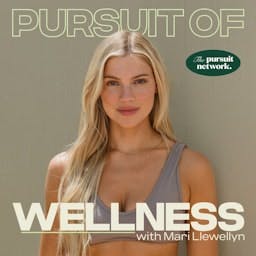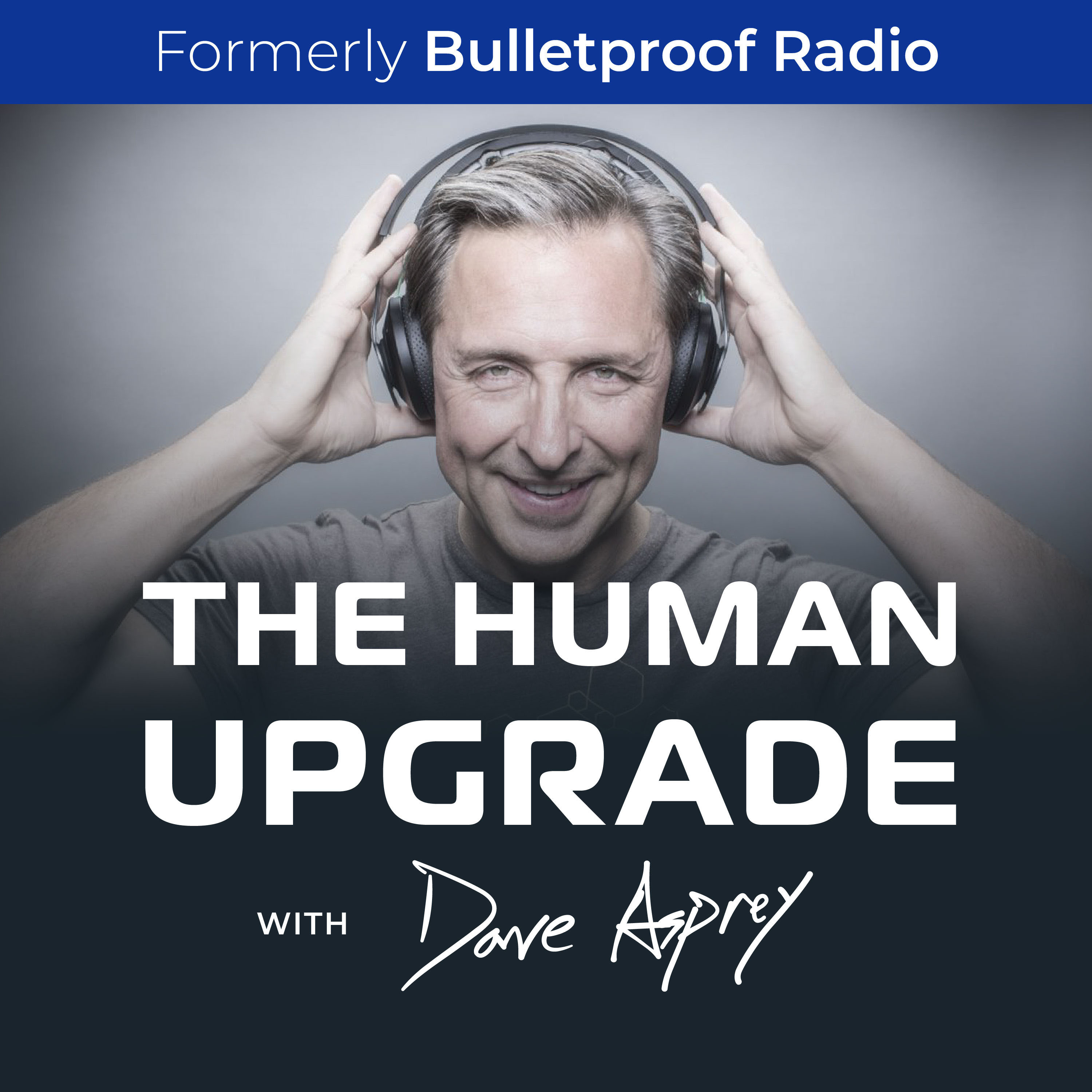
The ModernZen Collective Podcast
Are you ready to elevate your mind, body, and spirit? Join Lizzy Sutton and Nikki Sucevic on The ModernZen Collective Podcast, where conscious women come together to explore the art of living with purpose, balance, and spiritual grounding. Whether you're a single professional navigating the pressures of urban life or a stay-at-home seeker yearning for deeper connections, this podcast is your sanctuary for holistic practices and personal growth.
Tune in as Lizzy and Nikki delve into ancient wellness secrets, expand your consciousness, and help you discover your true life purpose. We tackle the challenges of work-life stress, the quest for inner peace, and the journey of rediscovering who you truly are, to be able to live in alignment. Here, we embrace the unconventional, celebrate community, and empower you to step beyond societal norms to find balance, joy, and holistic living.
The ModernZen Collective Podcast is here to guide, educate, and connect women ready to transform their lives. Discover a world where balance, joy, and holistic living are within reach. Connect, grow, and thrive with The ModernZen Collective—your space for holistic wellness in the modern world.
The ModernZen Collective Podcast
Reclaim Your Health: The Power of Elimination Diets with Rebecca Glick
Feeling tired, bloated, or foggy despite "eating healthy"? You're not alone. This eye-opening conversation, with functional medicine health coach Rebecca Glick, reveals how hidden food sensitivities might be sabotaging your wellbeing—and how an elimination diet could be the key to uncovering them.
Our host shares her transformative experience: "I was eating what I thought were foods that were good for you... when I started to eliminate things, I could not believe how I was living and feeling and that I assumed that was normal." Like many of us, she had normalized symptoms that were actually signs her body was struggling with certain foods. Simply removing one processed food item created an immediate, dramatic improvement in her energy and digestive comfort.
Rebecca explains that elimination diets provide a structured, short-term approach to identifying food triggers. By removing common inflammatory foods like gluten, dairy, and sugar for 3-4 weeks, then methodically reintroducing them while monitoring your body's responses, you create a personalized map of your food sensitivities. The beauty of this approach? It's accessible to everyone, requiring no special equipment or medical supervision—just awareness and commitment.
Ready to try an elimination diet? Proper preparation is key. Rebecca recommends gradual pantry adjustments, meal planning, and acknowledging the emotional aspects of changing your relationship with food, even temporarily. The awareness you gain extends far beyond the elimination period, creating lasting tools for understanding your body's needs and optimizing your health.
Find out more about Rebecca & her offerings in the MZC Practitioner Collective & connect with Rebecca on Instagram @nefeshliving
Check out the other episodes in the Miniseries -
EP. 58: The Hidden Toxins Impacting Our Energy + Health: A Conversation with Rebecca Glick
EP. 71: The Truth About Sleep & How to Improve It Holisti
Thanks for listening to The ModernZen Collective Podcast.
🔮 Ready to step deeper into this work? Our monthly bonus subscription unlocks expanded teachings, guided practices, exclusive interviews, and channeled insights to support your spiritual journey.
📘 Explore our Free Library, where you can access monthly Listener Reflection Guides that pair with our podcast conversation episodes—your space to go deeper, journal, and integrate what you’re learning.
💫 Meet our curated Collective of holistic practitioners—trusted experts who can support your growth and fast-track your transformation through personalized, aligned modalities.
✨ Want to stay connected between episodes? Join our email community to receive first access to new offerings, seasonal challenges, and exclusive wisdom from The ModernZen Collective—straight to your inbox.
🌿 Follow us on Instagram @modernzenco & personally at @lizzysutton.co &...
Hi, I'm Lizzie and I'm Nikki. Have you ever felt that your life was missing purpose, joy or deep connection? Welcome to the Modern Zen Collective podcast, where we embrace holistic living for a joyful, purpose-driven life In this podcast we'll explore holistic practices, consciousness expansion and spiritual alignment.
Speaker 3:We will dive into personal development practices that connect mind, body, spirit and share secrets that ancient cultures have known for centuries. Together, we aim to guide, educate and connect individuals eager to transform their lives.
Speaker 1:Join us weekly on the Modern Zen Collective podcast and elevate your mind, body and spirit.
Speaker 3:And now on to to another episode of the Modern Zen Collective podcast. I am Nikki and I am here again with our wonderful guest, Rebecca, who's been on this show a few times before. Rebecca is a certified functional medicine health coach and she's also a seasoned executive coach, so she pivoted to wellness and right now she's working with midlife moms and women wanting to renew their energy and jumpstart all of that. So today we are talking about the benefits of an elimination diet, what it means, how it can help us and everything that goes along with that. So thanks, Rebecca, for being here again, Thank you for having me.
Speaker 3:Yeah, so this is a subject that's really, really important to me. It really was a big part of my health journey. When I started to really look at you know, why was I so fatigued? Why was I tired? Why was I bloated? Why was I getting headaches? All of these things you know the basic things that were going on, because on paper, I was healthy, I was doing Pilates and yoga, I was running, I was drinking a lot of water, I was eating what I thought were foods that were good for you, and when I started to have the elimination diet and start to eliminate things, I could not believe how I was living and feeling and that I assumed that was normal. It was like this cloud, this veil that was over me and that just came from one thing I eliminated, which I remember it was Belvita crackers, like the biscuits To me.
Speaker 3:I was a director at a big company, I was working in HR, I needed my sustained energy. I wanted to have my coffee, my biscuits and be able to power through the day. And when that was the first thing I eliminated, I could not believe how different my stomach felt, how different my energy felt, everything. So that was a big part of my healing journey five years ago. So now, talking to you, when we first started talking about this, it was really energizing to me because it's something that anyone can do. You can really do that at home and start to see what is impacting your health. So I'm really excited to chat with you about this. How did you start? You know, obviously, with your journey in terms of I know you teach others this and you work with them but your own journey for elimination diet.
Speaker 2:Sure, yeah, Happy to share. And I would say you are definitely, you know, not alone in that feeling of, oh, this isn't normal to have all these symptoms and headaches and bloating I think we all become so accustomed to. Well, it's just because I didn't get a good night's sleep or this or that. And food really, really can play a big role in how we feel and we inadvertently may just completely dismiss that and not realize it because we think that's normal and there actually is a better way to feel and to feel good. So I really appreciate you sharing that and that that was your experience, because I think that's a very, you know, common and almost unfortunate experience, that people think that is the norm but that there is a better way, which is, to me, the exciting part. So, you know, personally I have experienced, you know, gone through elimination diets myself and I think, you know, the greatest thing that comes about is just this sense of awareness and that's what I hear from my clients too in this, you know, really kind of short term, because elimination diet is typically, you know, maybe three or four weeks, you know, and it can be modified and customized again to sort of what someone is focusing on healing, but it's not a forever thing and it's a short sort of snapshot that can really have a huge impact on long term healing, and so I view it as potentially, you know, a great way to sort of kickstart a longer term journey and get some really great insights. You know that just bring so much awareness into how different foods can be triggers and impact you, and so you know that's what I think is really unique and fascinating.
Speaker 2:And, as you said, like you know, anyone can really do something for a short amount of time. So years ago I experimented I did, you know, if you've heard of like Whole30, like I've experimented with that, and just you know it was like 30 days. I was like, okay, anyone can do something for that amount of time. And you know it takes effort and some planning and that's really the role that I play with clients and I just finished coaching someone a few weeks ago on an elimination diet and there is, you know, the role of a coach is sort of that setup and that preparation Because, depending on where someone is starting, it may be, you know, changing out some ingredients that they're really used to consuming on a regular basis.
Speaker 2:It may be cooking a little bit more than they're used to, and just breaking down that into do they like to cook, Do they know how to cook, Do they have time to cook, and kind of meeting them where they are in terms of what can, what's feasible, what can kind of simply be, you know, worked into the routine with. Again, that big flashing caveat of this is only a few weeks, it's short term. It's not, you know, meant to be kind of a forever thing, but it can actually have forever really great benefits, and so, yeah, I don't know if that answered your question.
Speaker 3:No, that was great. Yeah, no, you had your own journey. Now you help others, yeah, and you know it doesn't have to be forever. But you know, for me I've never ate a Belvita cracker after that. Why would I need it, you know? But that was part of my gluten elimination, just to start to see how that would feel. And also learning different types of gluten. There's high gluten, there's, you know, different types organic, this, that, et cetera. So I was learning what kind highly processed, not processed, et cetera that was working with my body. So it was almost.
Speaker 3:I enjoyed it because it was almost like a science experiment that I was figuring out what worked and didn't work, introducing things back in, like you said, it's not forever but you get to see. Does something make you feel weird, brain fog, bloated headache, et cetera? You probably won't want to bring that back in because when you do, you'll start to see those triggers and you'll realize that it feels better to feel healthy than to eat this thing that possibly could be generating this. But we've also talked about if you know, if it's something you want every now and then and you know that's what's going to happen, like for me, if I know I want a beautiful slice of New York pizza and I know it's going to make me feel bloated. I'm still going to enjoy it. But I know what happens because I had that elimination diet. It was very clear of what happens.
Speaker 2:Well, that's exactly. I mean, then you at least it gives you that information to pinpoint. You know what, like dairy or gluten or other, and those tend to be, you know, often on elimination diet because they're very inflammatory. You know that those things you know are going to impact you, but that's. You're in a social setting or a circumstance or a special occasion or something where you are willing to make that exception. But at least you can pinpoint exactly back and that's what I think is so fascinating, as you said about.
Speaker 2:So there's the elimination phase of you know, however many days or weeks that you're sort of taking out certain foods and you do realize that there are plenty. You know people have said to me but what do you eat? I said everything, plenty, plenty of other things that you can eat. You know, if you just sort of like take a step back and we've got recipes and meal plans and all kinds of things, but there really is plenty, plenty to eat. This is not a caloric restriction, this is just taking out certain things that tend to be food sensitivities, inflammatory in your body, that inflammatory are going to have reactions of brain fog, of fatigue, achiness, things that you know we may or may not want bloated.
Speaker 2:But the cool part is the reintroduction, as you said, is you go sort of step by step and you introduce, you know you start with, you know whatever food you want to introduce first or you're most curious about, and you have you know some servings of that in sort of a very plain way.
Speaker 2:You know nothing else mixed in, so like just an egg, not eggs and cheese and all kinds of other stuff, and you let your body just react to it for a day or two and just notice anything and keep a log and it's just really amazing that it really will come like your body will tell you. Your body will tell you and you're like, oh wow, I haven't had this sensation in you know 21 days or you know four weeks, you know, since I maybe took that food out and it's really noticeable of what will come back and some foods you may have no reaction at all and that's great too, because it's not meant to take every single you know thing out of your diet. But it's just amazing what the body can tell you when you do this.
Speaker 3:Yes, and are there, you know ones, like you said, gluten, dairy, you know. Are there ones that are, if someone just wanted to start dabbling and try to decide. Are there ones that are the big ones, that are typically the ones that are inflammatory or that are, you know, sometimes troublesome, that you can easily, you know, start to eliminate?
Speaker 2:Yeah, I mean I would definitely say dairy and gluten like kind of top that list in terms of more, you know, inflammatory and potentially can be rougher on your gut and your microbiome. So if that's something that you're working to heal, you know, those can often be a place to start or give yourself a head start. You know, everyone is a little different. You know I, you know, became aware that I had a sensitivity to eggs that I really never would have thought. I ate a ton of eggs in my diet, good protein source. But I was having headaches all the time.
Speaker 2:And I remember, you know, when I was told by my provider, like try, let's try taking out eggs, I was like no A, I eat them so much and it was like a big, it was kind of an emotional piece of like oh my God, what am I going to eat for breakfast? How am I going to do this? And and also just this, like I don't believe you, I think eggs are fine and lo and behold, I reintroduced eggs and I mean I was kind of in denial but I did like immediately have this like headache, like this groggy kind of feeling, and I was like, oh no, but I think there was something else, and it was so clear to her that it was the eggs.
Speaker 2:So I was like, okay, I'll give it a rest for now and I and I still may try to reintroduce them again in the future. But, um, it really, and it did. Like I have, I have found plenty of other things to eat for breakfast and I make this really good like eggless, um, uh, like beef hash with like vegetables and mushrooms and sweet potatoes and ground beef and spices and you'd think eggs would go with that. But like I really don't miss it and I put some avocado and it was a shift. It was a big shift, you know, and that is part of this is, you know, there's got to be a willingness, I think, to experiment and make changes and know that there are other ideas and options out there, if you're sort of willing to explore them and experiment. But yeah, it's a journey for sure and it's a real, you know, kind of learning exercise. But yeah, dairy and gluten to go back to that can often be places to start.
Speaker 2:You know, typically on an elimination diet, it's, you know, pretty focused on, you know, unprocessed foods, so you know kind of fridge first, healthy proteins, you know lots of fruits and vegetables and produce Sugar is another one, that is, you know lots of fruits and vegetables and produce, um. Sugar is another one that is, you know, not great for the microbiome and, you know, regulating your blood sugar and can often cause those kind of highs and lows of feeling, um, you know, fatigue or kind of groggy and um. But that can be a hard one, right, because there's forms of sugar in everything, so that can be a little more challenging. But you know there's a lot of ways with sort of the right prep and the right willingness to get at that too. Yeah.
Speaker 3:So going, you know, to it's almost like Whole30 when you're doing the elimination, because you're going to more whole foods and more, yeah, foods that are not over processed, but then also, yeah, I know that gluten and dairy are big ones For me, very similarly with eggs and potatoes, like those I found to be really inflammatory. So that was something that was an adjustment for me because, much like you, I was making a sweet potato scrambled egg veggie bowl in the morning and obviously that was not serving my body.
Speaker 3:But on paper it looked like it was serving my body because it was colorful and it had all these super foods in it, but it wasn't for me. So when you're starting an elimination diet we've talked before on other episodes about all or nothing, all in, all out Do you recommend let's start tomorrow, just eliminate gluten, eliminate dairy, eliminate everything, and just do these whole foods and then start to introduce one by one after you have some clean cleansing? Or is it a gradual thing where you do one and then maybe the other later?
Speaker 2:Yeah, I think I'll give you the it depends answer. I mean it depends on the individual and sort of maybe what their symptoms are and what their goals are. For me, I can speak personally with the eggs. I actually did do the eggs like a few weeks in advance because I thought that was going to be really hard for me and so I wanted to just get used to like what the heck am I going to eat, and because it was such a staple, and so I sort of did that one in advance. But I think it depends on where someone is willing to start.
Speaker 2:Overall, though, you want to have those foods that are on you know the list and there's a specific list you know all eliminated in a cumulative. You know four weeks, so maybe you start gluten earlier, but it's sort of going to kick in once you're doing everything so that you really get the full impact for those triggers to kind of quiet down in your body. For certain triggers it takes a few weeks, you know, for your body really to adjust, which is why it's that you know kind of 21 to 28 day mark and that you do the reintroduction slow and that is, you know, that adds to the process, but it's sort of like if you're going to bother to do and take out these foods, you want to kind of reintroduce them very slowly the first time I actually did. Oh sorry, go ahead.
Speaker 3:No, I was going to say. Then you can feel your body and how it feels when you do the more mindful introduction.
Speaker 2:Yeah, yeah, and I think I mean even for preparation too. You know, sometimes you know, let's say, someone's going to start an elimination diet in September. You know, maybe in August they're just trying to, you know, start to buy some different things in their pantry or in their refrigerator that are going to, you know, start to switch some of that out. So it doesn't seem like okay. I'm making one massive grocery store trip.
Speaker 2:You know the day before I'm starting this and sort of do it gradually to start to, you know, kind of realign their pantry a little bit and and even just making like some meal planning.
Speaker 2:There's. There's tools that people can use to just, I think, with, with doing an elimination diet, um, uh, just using some kind of planning system, whatever works for an individual. There's different apps, you know weekly planners and grocery shop type stuff, writing it down on your phone, writing out on a calendar. But I think the more you can find a way that's simple for you to just kind of plan things out, then it doesn't like as long as you know what you're going to be eating, then it doesn't become oh gosh, well, what am I going to eat for dinner and I can't eat this, and I can't eat that, and really reversing like where are all the things that I can't eat? There's plenty. And just having a, you know, a little bit of a plan in place can really help ease kind of the process and the burden of maybe cooking a little bit differently or not eating out as much while you're doing the elimination diet, so You're not eating out as much while you're doing the elimination diet.
Speaker 3:So, you know, helping someone just feel really like set up and ready before just jumping in, I think is definitely the way to go. Yeah, it helps to release that mental like you're saying that mental of like workload of trying to figure it all out one by one. Instead you know you have that plan and you can release and not worry about it, that you have it all planned and it's good to go.
Speaker 3:And like you've said before. You know it is 21 days, it's 28 days. You know we can do anything for 30 days. So let's figure out how we can do this to feel the best in our body and have that slow introduction too.
Speaker 3:I noticed I eliminated. You know, I did this five years ago and I started to introduce things back in and I brought dairy back in and I brought gluten back in, and I know when I can almost tell. I know that there are certain pastas. If I make pasta at home for Kyle and we'll have like a pasta night or something, I will notice that if I buy a gluten-free pasta that's made of something like rice or chickpea, it bloats me more than if I get like a nice Italian pasta that has one ingredient, just the wheat ingredient. And that was part of my journey too, because as I'm eliminating, I'm thinking, oh, I'll just use this chickpea pasta, it would be great. Well then I realized chickpea is something that I didn't feel great with and inflamed me. So that was a part of the journey too, of me introducing the types of gluten and realizing different manufacturers do different ways of processing their pasta. That's why I love if I do make pasta I try to buy Italian pasta, because just the way that it's produced has different you know regulations and how they're putting everything together.
Speaker 3:Yes, and I did a similar thing with dairy and I realized you know certain farms. I felt different. It was just the same kind of thing. So, like you're saying, everything is so specialized for us and our body that we'll feel different than I'll feel different than you and vice versa, and we just have to trial and error, which is also that patience as us, as humans, we have to have that. I don't like to say have we get to have this patience during the process to really get to know our body, which is such a beautiful gift that we get that. You know we have this opportunity to do that and do a diet like this. Yeah, yeah.
Speaker 2:Completely, I totally agree, and I think that's you know. What you're touching on is like that awareness kicking in, that, even like years or months later than you did you know, kind of an official elimination diet, that you're still listening to those cues, and that's what's so cool that this can teach you is it doesn't have to be just in the 21 days of like, oh, that didn't really sit right or that didn't make me feel good, like what you know, kind of what's going on. And I think that applies to anything food or anything in our bodies Like the more we can be in tune and have that sense of awareness of how things make us feel coming in and out, it just it's, it's super powerful.
Speaker 3:Yeah, having that slow and steady mindful connection and feeling your body, feeling the energy in it, feeling how it is reacting and feeling how it's healing and and giving it space. You know I like elimination diet I I really am so interested in. But I also am interested I think we've talked about this before giving your body time to digest, not compounding something on top of something on top. It's just very, very much how I was raised was to make sure you eat and then eat again, and then eat again and then eat again. Giving your time, your body, time to process.
Speaker 2:That's exactly what the reintroduction is Like you have to wait 48 hours usually in between introducing a new food, just to you know it's not sometimes, and that's what that was. Something that I didn't realize either is I was like, oh well, it's an immediate reaction and sometimes that's really more of a food allergy and that's not necessarily what we're talking about here. We're talking about just sensitivities or triggers or reactions, and that can be a full 24, 48 hours until your body actually is like emitting that symptom from something you ate, you know, two days ago. It's not necessarily an instant like you're going to break out in hot. That's an allergy and so there's a level of patience and kind of commitment to see that. But your body will tell you yes.
Speaker 3:Your body. If you're listening, your body will tell you. We have to listen to our body. Yeah, yeah, Well great.
Speaker 2:Any final words on elimination, diet or anything that we haven't touched on.
Speaker 2:No, I think it's important to recognize too and I try to hold this for individuals that I'm working with about sometimes the emotional connection that we have, you know, just giving up certain foods or feeling deprived or changing our habits Even if it's temporary, there still can be just a lot. It can be it feel like a really big ask, and so that's something that I just really spend time with people checking in on of sort of where are they in terms of that readiness and really connecting it back to like the why of what are all the things that this might do and uncover for them. But not overlooking that, Because I do think, even in a short time, you know it's a change, right, and so just not overlooking that we're asking people to make some changes and change some habits and give up things that you know might feel really needed, and so taking that moment to just acknowledge that and put that out there, I think is important that as well, because, yeah, that's could be a big part of it.
Speaker 3:Especially like I grew up in a food household, we talked about food all the time. Everything was food, like everything was what are we having for lunch, dinner, all this stuff. So having that, as you know, that emotional connection and listening to your body and giving yourself that time and knowing that you have that emotional connection to the process, to the routine, et cetera, is huge. Thanks for bringing that up. That's very important, great. Well, this is another beautiful chat. Love learning everything that you are sharing with your clients and you're able to help women. So with us we have Rebecca on the Modern Zen Collective. You can see her there and connect with her through her website, instagram, through there. But so that listeners know how they can connect with you, how can they find you? Sure?
Speaker 2:So I'm on Instagram it's at Nefesh Living or you can send me an email at Rebecca at NefeshLivingcom.
Speaker 3:Amazing. Well, thank you so much for your time, Rebecca. This has been wonderful, and thank you everyone for listening through to the end and listening all about this elimination diet. We'll have some links in the show notes for you and ways that you can connect with Rebecca and work with her if you'd like to do this on your own. But thank you so much for listening. Thanks.
Speaker 1:Rebecca for being here. Talk to you all soon, all major platforms, and take the first steps towards elevating your mind, body and spirit For all resources mentioned in this episode and to connect with us in our conscious community. Check out the episode show notes for all links and our current offerings. See y'all next time.
Podcasts we love
Check out these other fine podcasts recommended by us, not an algorithm.

Aligned Abundance: Manifestation with Emma Mumford
Emma Mumford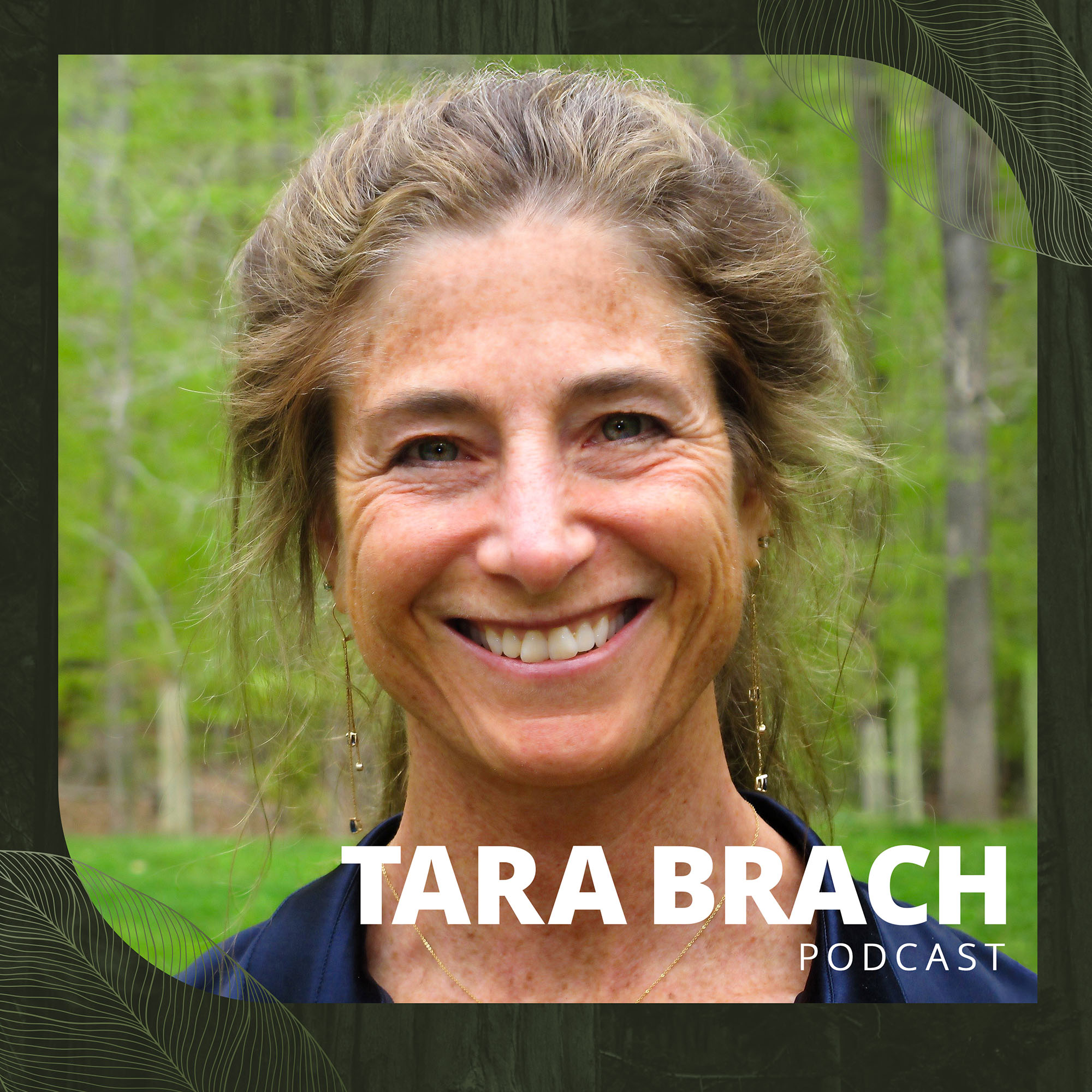
Tara Brach
Tara Brach
Align with Jenna Zoe: The Human Design Podcast
My Human Design
Returning with Rebecca Campbell
Rebecca Campbell
Manifestation Babe
Kathrin Zenkina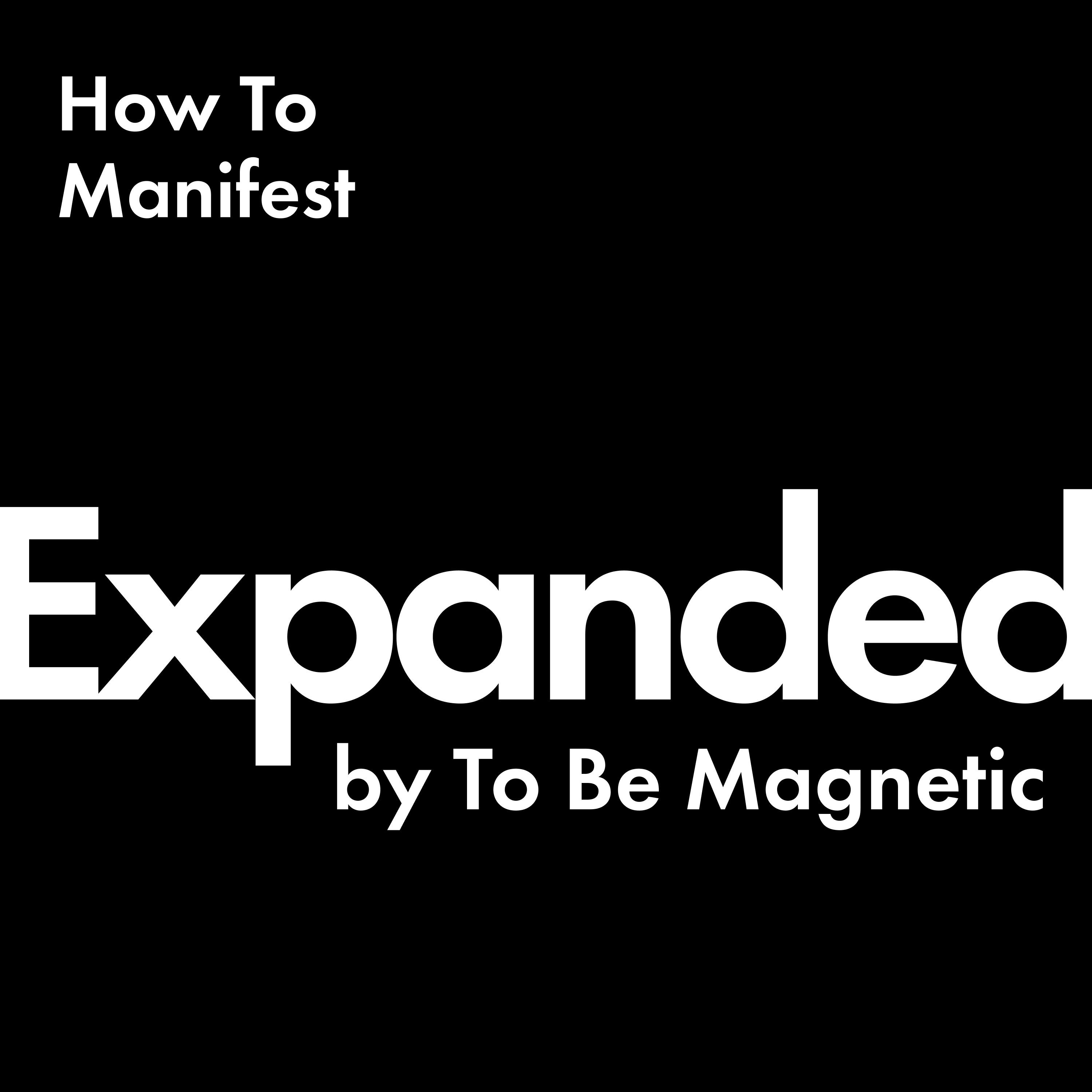
EXPANDED Podcast by To Be Magnetic™
To Be Magnetic™
Feel Better, Live More with Dr Rangan Chatterjee
Dr Rangan Chatterjee: GP & Author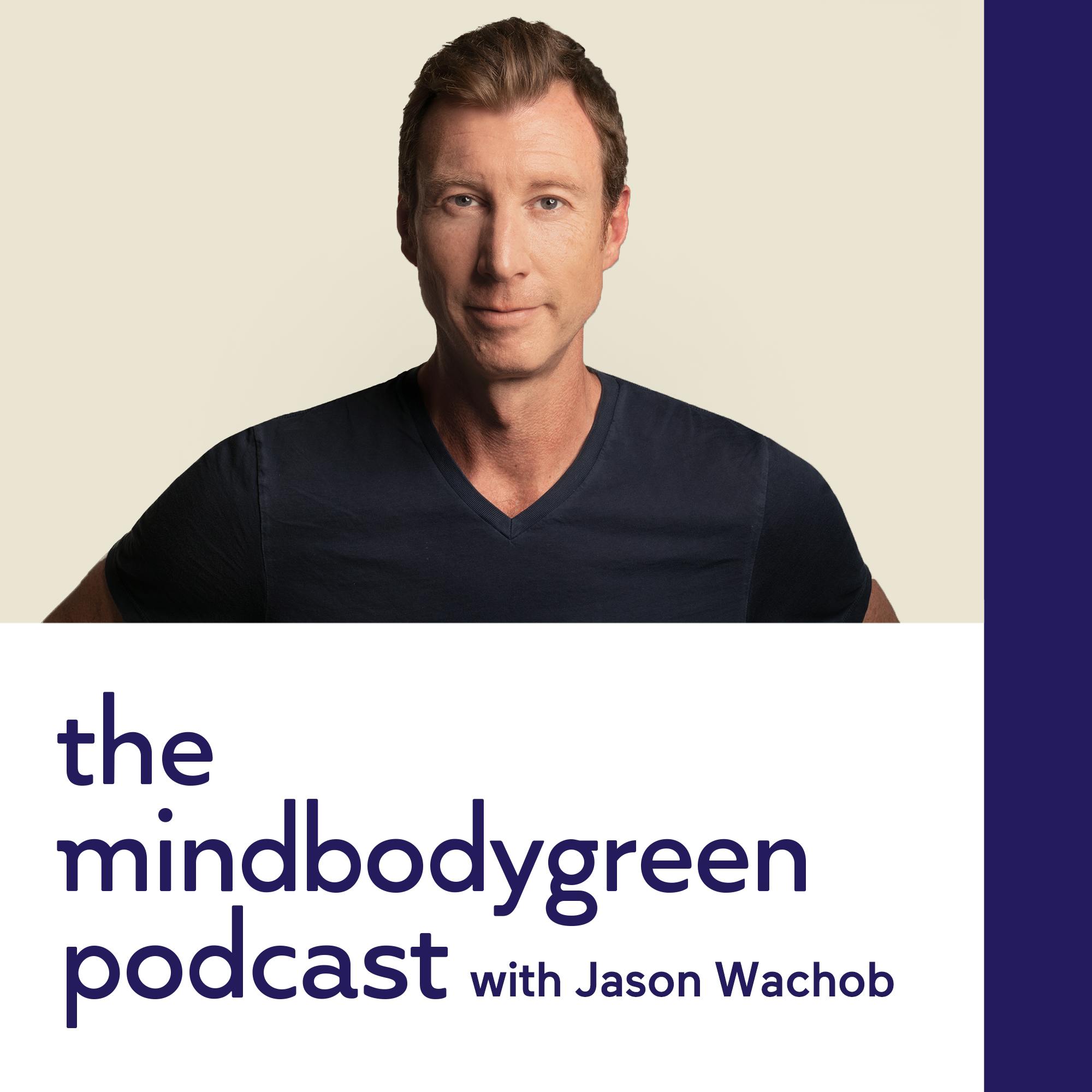
The mindbodygreen Podcast
mindbodygreen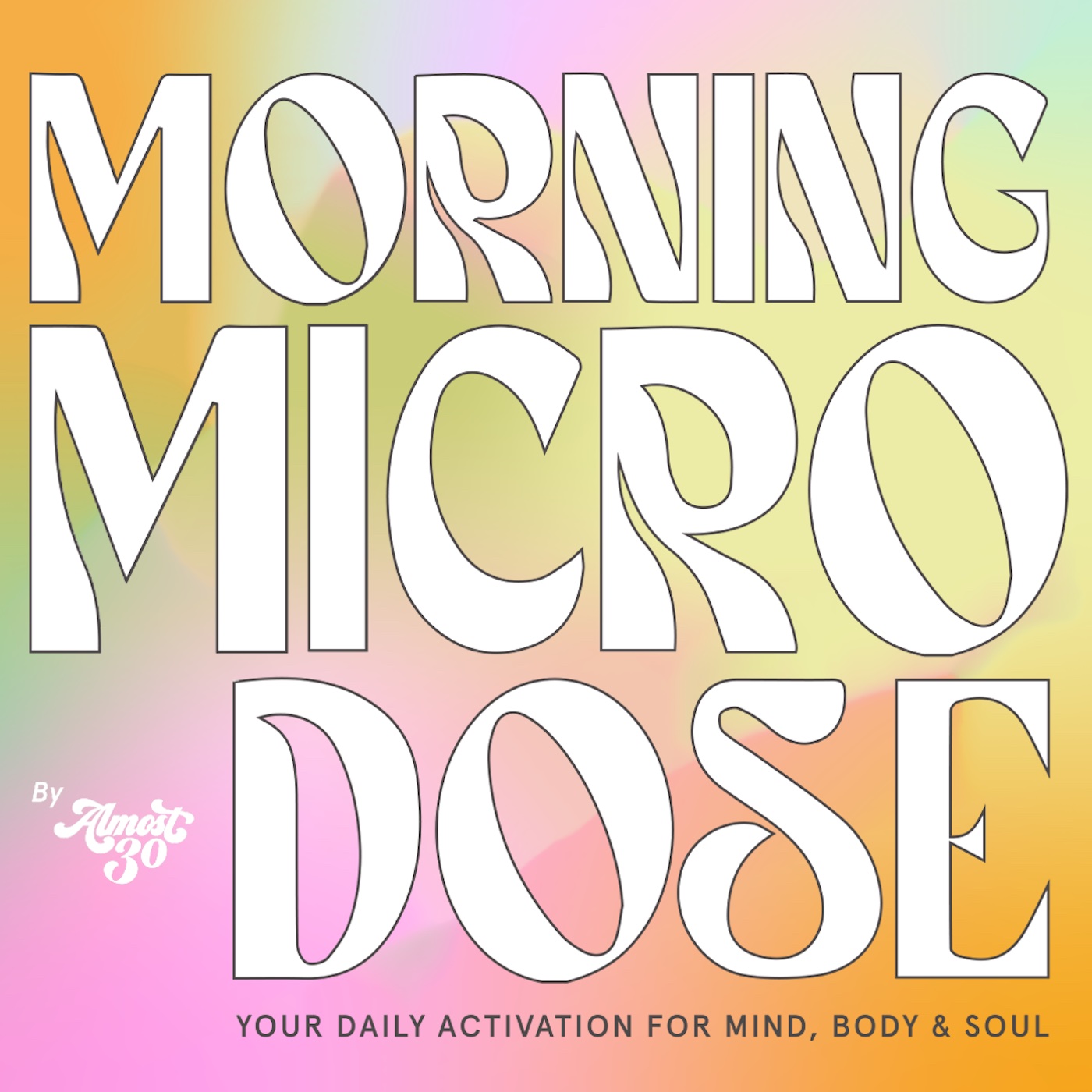
Morning Microdose
Almost 30
The Hannah Summerhill Show
Hannah Summerhill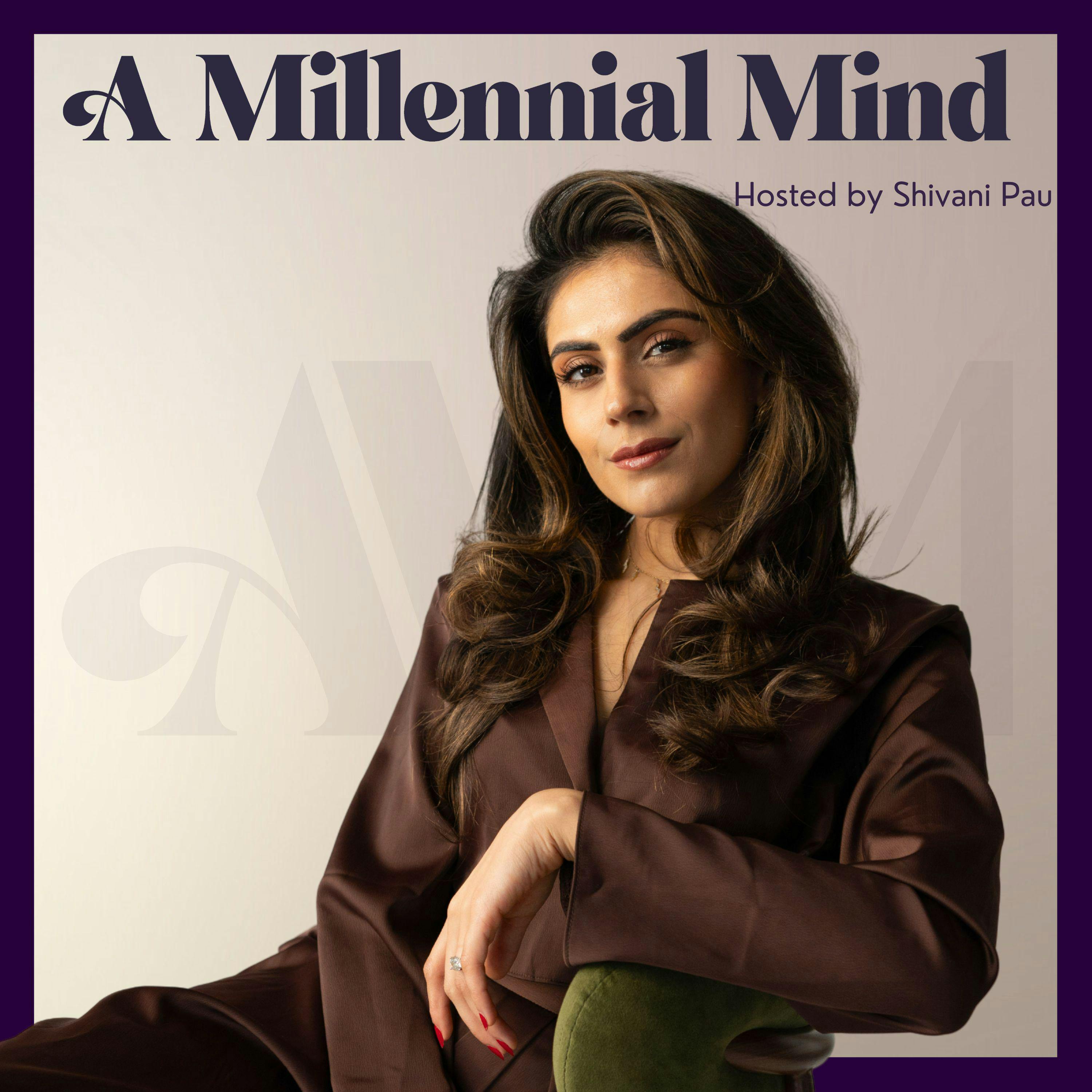
A Millennial Mind
Shivani Pau
Move With Heart
with Melissa Wood-Tepperberg